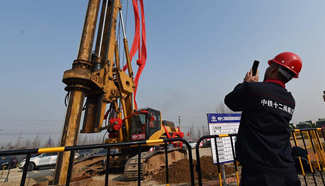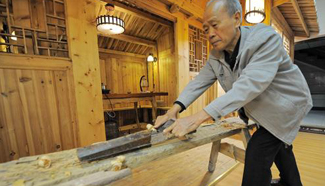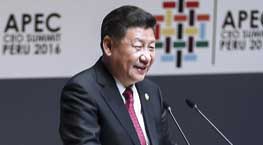SYDNEY, Dec. 1 (Xinhua) -- The rising Chinese phenomenon of online entrepreneurial villages also offers much potential for Australian market, according to e-commerce giant Alibaba's research team.
"There are certainly opportunities for growth here and we have been receiving inquiries about possible areas for development. For example, Australian products continue to be in demand in Chinese cities that Australian rural businesses can fill," Sheng Zhenzhong, deputy director of the Aliresearch Institute, told Xinhua on Thursday.
"We've seen how Australian products such as milk powder and health supplements are very popular in China."
Sheng, who oversees Alibaba's research centre for "rural dynamics", was speaking on the sidelines of a presentation on Chinese rural e-commerce, on the first day of the Digital Enablement Conference, organized by the University of New South Wales Business School.
The conference, which aims to provide a venue for sharing cutting-edge research and networking opportunities among academia and business, saw keynote speeches, panel discussions and paper presentations by leading practitioners from across the world over two days.
Seven years ago, groups of rural entrepreneurs who opened shops on Alibaba's Taobao online shopping platform began appearing in China.
The first of these "Taobao villages" to take up e-commerce on a large scale was a farming community in east China's Jiangsu province. More than 1,000 households involved in furniture production subsequently joined the digital marketplace, according to Aliresearch.
The institute defines a Taobao village as "a cluster of rural e-tailers within an administrative village", where residents get "started on e-commerce spontaneously primarily with the use of Taobao marketplace. The total annual e-commerce transaction volume is at least 10 million Chinese yuan (1.45 million U.S. dollars) and at least 10 percent of village households "actively engage in e-commerce or at least 100 active online shops have been opened by villagers".
By the end of August, there were 1,311 Taobao villages across China, according to latest figures from the institute.
In the past year alone, more than 47 million people bought T-shirts, more than 16 million bought toys and more than 3.5 million bought sunglasses via the villages, among other items.
"There are also many villages that will be able to offer distinct products and some of these might meet the needs of Australian consumers," Sheng said.
"One of my overseas Chinese friends here said products such as outdoor wear and vehicle accessories are very popular here. All these offer many opportunities.
"From the institute's perspective, we also hope to use events like this conference to tap developments and exchanges in the field overseas toward these growth areas, on top of our own work at home," said the director.










